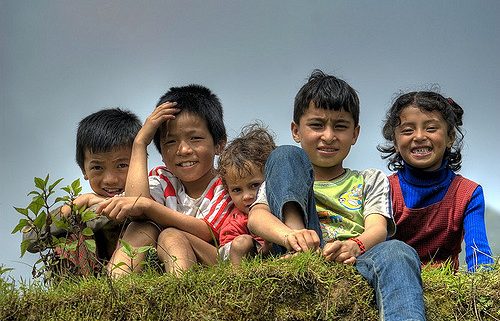What is it, that our Children Really Need from Us?
What do children need? As humans, we have five basic needs: survival, love and belonging, fun, power, freedom… Let’s look at these in more detail….
Survival – this is about the basics we need to support human life – good nourishing food available including water, comfortable clothing which fits and suits the weather conditions, shelter from the elements and which also provides a home base – a place of safety, and warmth both physical and emotional.
Love and Belonging – Parents can show love in many ways- with our words of kindness, praise and compassion, by gentle touch and fun, rowdy touch such as high 5’s or tousling hair, by giving our time to another to engage with them, by small gifts of things which give them enjoyment and also by doing acts of service – cooking a favourite meal or fixing the flat tyre on their bike. As humans, we like to belong to something – to feel part of it. It may be a family, a community, a church, a sports group etc.
Fun – Play with your children – with their toys, with laying on the grass watching the clouds, with jumping into puddles and blowing bubbles across the sky – laugh with them… especially at littles ones silly jokes.
Power – Children get power through knowledge ie understanding how things work, understanding about trial and error, understanding about cause and effect. When they learn in this way, they develop a bigger understanding of how the world operates and the impact their choices have – to them and for others. Power is also something children learn from how their parents model it – do you speak calmly in an argument or discussion – or do you yell and put-down another. Do you stand up for yourself when you’ve been mistreated. Children need to understand how to use their voice (their power) to protect themselves whilst respecting others who voice their opinions
Freedom – this is learnt through offering young children about choices and boundaries. Give children choice about things they can choose (the red/ black or striped T-shirt, or the ham or chicken or cheese sandwich) but learning there are boundaries in place eg they can’t choose whether to wear a seat belt or not – that’s a parental decision (a legal one!) Boundaries do keep children safe, which allows them to safely explore within those boundaries – that’s appropriate freedom for little ones.
Have you heard of the BE/ DO/ HAVE model?
It’s a model for working in the world whether you are talking about personal or work related goals. Basically it’s about who do I have to BE and what do I need to DO, in order to HAVE the goal I desire.
So, in the above example of children’s needs they are the HAVE – the goal we desire – we want children to have fun, be loved etc
We DO it by providing as I suggested above.
So in order to do those things (play with them, provide food, teach them etc) who do you have to BE?
BE is about being a person:
- Who speaks with respect
- Work as a team member (if you have a partner or are co-parenting)
- Who remembers that children are ‘learners’ and so will make many mistakes before they get things right – they need your support during this time!
- And be a person who practices self-care so that you can DO the things you need to do in order to HAVE the desired goal. Self-care might be a walk alone on the beach, a bubble bath, a coffee catch up with friends – it’s different for everyone.
The BE/ DO/ HAVE model is a great tool.
Happy Parenting this week!



